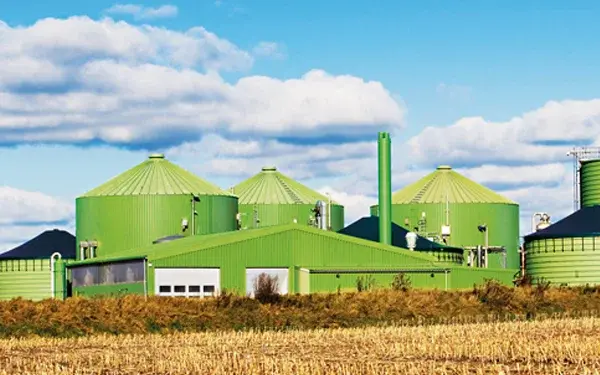MNRE Notifies Key Revisions in Biomass Programme Guidelines
- TPP

- Jun 28, 2025
- 3 min read

In a significant move to enhance India’s renewable energy ecosystem, the Ministry of New and Renewable Energy (MNRE) has issued revised guidelines for the Biomass Programme under Phase-I of the National Bioenergy Programme, covering the period from FY 2021–22 to 2025–26. These revisions are aimed at promoting cleaner energy alternatives, improving the ease of doing business, and accelerating the adoption of biomass technologies across the country.
A major thrust of the new framework is simplification. MNRE has streamlined numerous procedures—cutting down on bureaucratic paperwork and easing approval processes—particularly benefiting Micro, Small and Medium Enterprises (MSMEs). These updates are well aligned with India’s broader goals, including improved stubble management and the ambitious target of achieving net-zero carbon emissions by 2070.
One of the most noteworthy revisions is the incorporation of cost-effective digital solutions. Instead of mandating complex and expensive systems such as SCADA (Supervisory Control and Data Acquisition)—an industrial control system for real-time monitoring—the guidelines now permit the use of Internet of Things (IoT) - based monitoring tools or quarterly data submissions. This change makes digital accountability and efficiency accessible to smaller biomass operators.
In another important step toward reducing operational friction, the documentation requirements for briquette and pellet manufacturing plants have been significantly relaxed. Developers will no longer need to submit multiple clearance documents, thereby saving valuable time and removing entry barriers, ultimately fostering ease of doing business in the bioenergy sector.
To further improve operational flexibility, the earlier mandate for a two-year briquette or pellet sale contract has been replaced with a general sale agreement. This allows project developers to better adapt to market conditions without being locked into long-term commitments. The revised framework empowers biomass businesses to initiate operations and scale up without rigid commercial obligations.
The Central Financial Assistance (CFA) mechanism—a subsidy provided by the government to support biomass projects—has also been updated to ensure transparency and performance-based support. Projects operating at 80% or more of their rated capacity will be eligible for full financial assistance, while those performing below this threshold will receive a pro-rata (proportionate) subsidy. This approach rewards efficiency and optimal resource use.
Further, the performance inspection timeline has been made more developer-friendly. While previously restricted to a window of 18 months from the commissioning date, inspections can now occur within 18 months from either the date of commissioning or the date of In-Principle Approval—whichever is later. Additionally, to accommodate on-ground operational delays, the Secretary of MNRE now holds the authority to extend the inspection period.
Don't miss
The inspection criteria themselves have been relaxed. Earlier, a plant’s performance had to be measured over three consecutive days at an average of 80% of rated capacity, using a 16-hour daily average. The new rule requires just 10 continuous hours of operation to verify the claimed and operational capacity—making it less resource-intensive while still ensuring credibility.
Addressing environmental concerns, especially the widespread issue of stubble burning in northern India, the revised guidelines have introduced region-specific benefits. Biomass pellet producers operating in Delhi, Punjab, Haryana, and NCR districts of Rajasthan and Uttar Pradesh now have the flexibility to choose between financial support from MNRE or the Central Pollution Control Board (CPCB), depending on which is more beneficial for their operations.
These forward-looking reforms are expected to catalyze the establishment of new biomass-based plants, facilitate timely disbursement of subsidies, and ensure smoother implementation of the biomass programme. More importantly, they will support the sustainable management of agricultural waste, reduce air pollution, and promote the use of renewable biomass fuels as a cleaner alternative.
Click for UPSC Content
Click for Daily Quotes:
Stay updated with the latest news by joining our Telegram channel – The PRESS Pad , and follow us on Instagram and X.



Comments